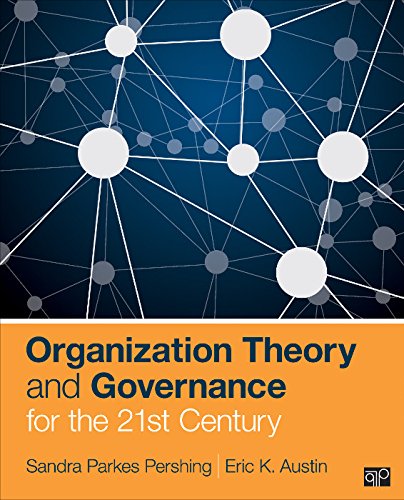Organization Theory and Governance for the 21st Century
Availability :
In Stock
₹ 5,904.00
M.R.P.:₹ 7380
You
Save: ₹1,476.00 (20.00% OFF)
(Inclusive
of all taxes)
Delivery:
₹ 0.00 Delivery charge
Author:
Sandra Parkes Pershing
Publisher:
CQ Press
Edition:
1st Edition
ISBN-13:
9781604269840
Publishing Year:
2014-08-01
No. of Pages:
352 pages
Language:
English
Book Binding:
Paperback











